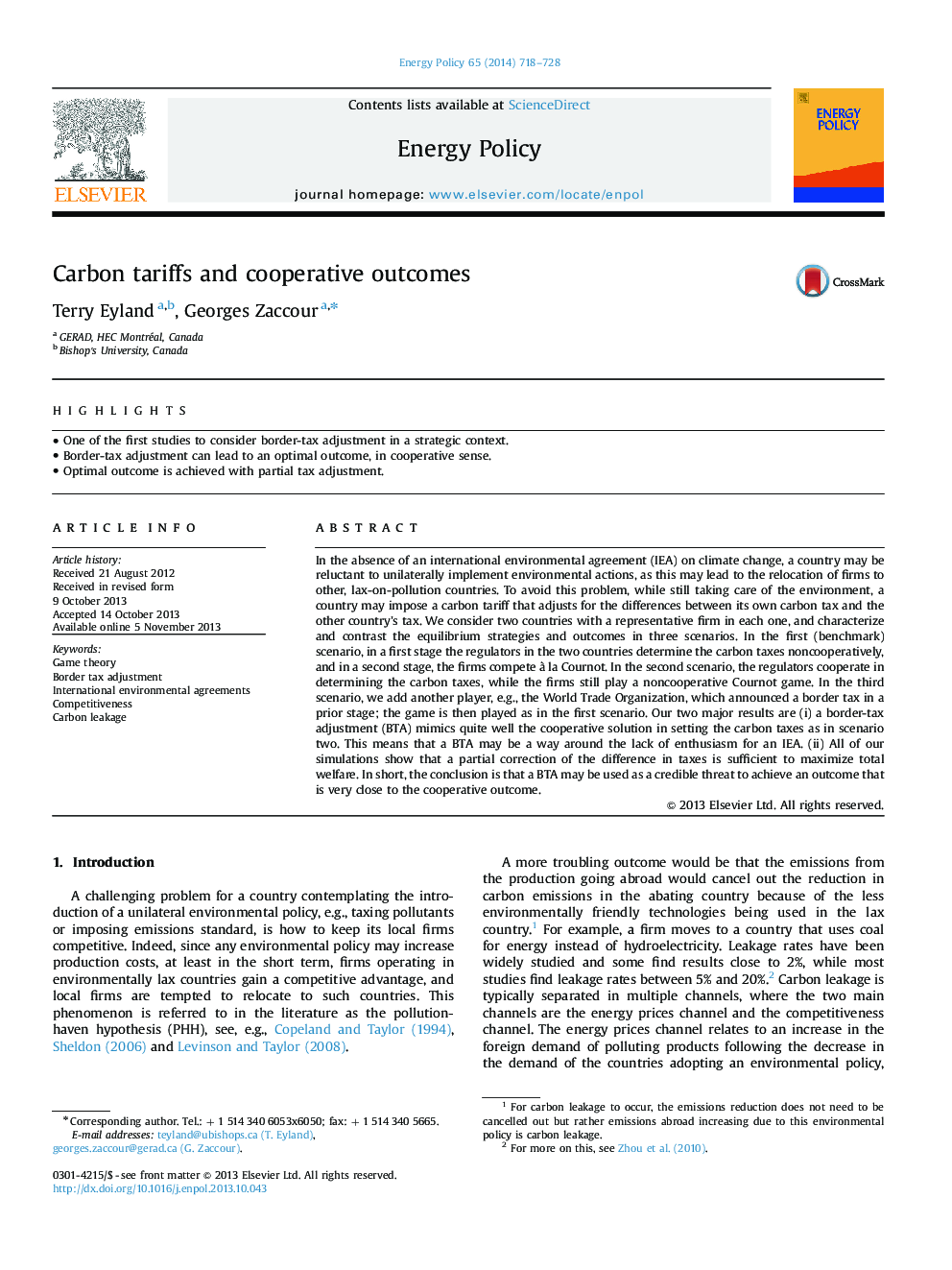| کد مقاله | کد نشریه | سال انتشار | مقاله انگلیسی | نسخه تمام متن |
|---|---|---|---|---|
| 7403693 | 1481293 | 2014 | 11 صفحه PDF | دانلود رایگان |
عنوان انگلیسی مقاله ISI
Carbon tariffs and cooperative outcomes
ترجمه فارسی عنوان
تعرفه های کربن و نتایج همکاری
دانلود مقاله + سفارش ترجمه
دانلود مقاله ISI انگلیسی
رایگان برای ایرانیان
کلمات کلیدی
نظریه بازی، تعدیل مالیات مرزی، توافقنامه های بین المللی محیطی، رقابت پذیری، نشت کربن،
موضوعات مرتبط
مهندسی و علوم پایه
مهندسی انرژی
مهندسی انرژی و فناوری های برق
چکیده انگلیسی
In the absence of an international environmental agreement (IEA) on climate change, a country may be reluctant to unilaterally implement environmental actions, as this may lead to the relocation of firms to other, lax-on-pollution countries. To avoid this problem, while still taking care of the environment, a country may impose a carbon tariff that adjusts for the differences between its own carbon tax and the other country's tax. We consider two countries with a representative firm in each one, and characterize and contrast the equilibrium strategies and outcomes in three scenarios. In the first (benchmark) scenario, in a first stage the regulators in the two countries determine the carbon taxes noncooperatively, and in a second stage, the firms compete à la Cournot. In the second scenario, the regulators cooperate in determining the carbon taxes, while the firms still play a noncooperative Cournot game. In the third scenario, we add another player, e.g., the World Trade Organization, which announced a border tax in a prior stage; the game is then played as in the first scenario. Our two major results are (i) a border-tax adjustment (BTA) mimics quite well the cooperative solution in setting the carbon taxes as in scenario two. This means that a BTA may be a way around the lack of enthusiasm for an IEA. (ii) All of our simulations show that a partial correction of the difference in taxes is sufficient to maximize total welfare. In short, the conclusion is that a BTA may be used as a credible threat to achieve an outcome that is very close to the cooperative outcome.
ناشر
Database: Elsevier - ScienceDirect (ساینس دایرکت)
Journal: Energy Policy - Volume 65, February 2014, Pages 718-728
Journal: Energy Policy - Volume 65, February 2014, Pages 718-728
نویسندگان
Terry Eyland, Georges Zaccour,
